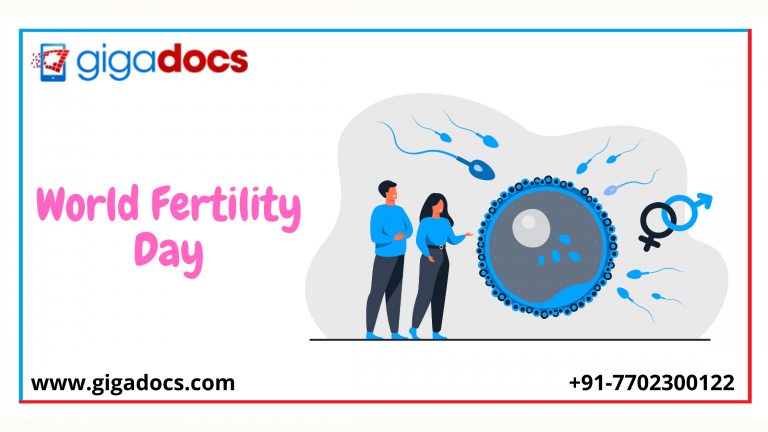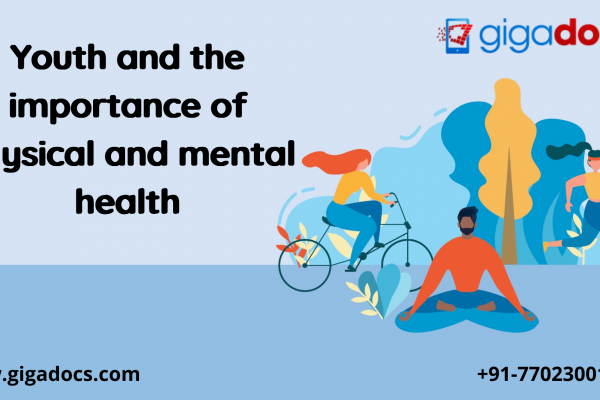Fertility problems affect up to 15% of couples.
Female fertility refers to the ability to conceive a biological child naturally. If you and your partner have been trying to conceive for at least a year with frequent, unprotected sex, or at least six months – if you are above 35 without success, it might be a good time to talk about Infertility.
How serious is Infertility?
Infertility affects more than 180 million couples in low- and middle-income countries (LMICs). According to the World Health Organization (WHO), in some countries a girl with fertility issues is deemed un-marriable and a burden on families and communities. Furthermore, due to the intense stigmatization of Infertility and childlessness in some LMICs, a woman who is unable to bear children would face major mental distress, social and psychological consequences, gender-based abuse, and may even be driven out and deserted by her family.
Infertility Causes
- Ovulation Abnormalities- These are conditions that prevent eggs from being released from the ovaries. Hormonal abnormalities such as polycystic ovarian syndrome, hyperprolactinemia, and thyroid issues (hyperthyroidism or hypothyroidism) are examples of this disorder.
- Cervical or Uterine Disorders- Includes fibroids or polyps in the uterus.
- Fallopian Tube Blockage or Damage- Common causes include pelvic inflammatory disease.
- Endometriosis- When the lines inside the uterus grow outside, it can seriously affect the fertility of a woman.
- Primary Ovarian Insufficiency (Early Menopause)- Begins when the ovaries cease to function, and menstruation stops before 40.
- Irregular Menstruation – Fertility is adversely affected by menstruation-related medical conditions like celiac disease, autoimmune diseases such as lupus, and poorly controlled diabetes.
- Age and Body Clock- Postponing conception can lower a woman’s fertility. When the quantity and quality of their eggs decrease with age, it becomes more difficult to conceive.
| World Fertility Day 2nd November is marked as World Fertility Day. This day raises much-needed awareness about fertility around the world. It is a day of education and dialogue, helping people be more open about infertility and breaking down barriers. |
12 Natural Fertility Boosters
Fortunately, there are a few natural solutions to boost your fertility. In fact, improvements in diet and lifestyle can help increase fertility. Here are a few natural methods for enhancing fertility and becoming pregnant faster.
- Consume Antioxidant-Rich Foods.
Antioxidants such as folate and zinc have been shown to increase fertility in both men and women. They inhibit the activity of free radicals, which can harm both sperm and egg cells. According to one study of young adult men, eating 75gms of antioxidant-rich walnuts per day increased sperm quality. Antioxidants dense foods include nuts and grains rich in vitamins C and E, folate, beta carotene, and lutein, which can help with infertility.
- Eat a Hearty Breakfast and Limit Carbohydrate Intake.
Following a low-carb eating plan (where carbs account for fewer than 45 percent of total calories) is highly suggested for women with PCOS. Several studies have found that controlling carbohydrate intake can help with various symptoms of PCOS. A lower carbohydrate diet may help maintain a healthy weight, lower insulin levels, and promote fat reduction while improving menstrual regularity. Besides, eating a heavy breakfast may benefit women who are having trouble getting pregnant. According to one study, eating an enormous breakfast may reduce the hormonal consequences of the polycystic ovarian syndrome (PCOS), a leading cause of infertility. Eating most of one’s calories at breakfast lowers testosterone levels by 50% and insulin levels by 8% in moderate-weight women with PCOS.
- Say no to Trans Fats.
Eating healthy fats on a daily basis is essential for improving fertility and general wellness. Trans fats, on the other hand, are linked to a higher risk of ovulatory infertility due to their harmful effects on insulin levels. Trans fats foods include baked goods, hydrogenated vegetable oils, fried foods, processed foods.
- Consume More Fiber.
Fiber helps in the removal of excess hormones and the management of blood sugar levels. They also work to remove excess estrogen excreted from the body as waste. Whole grains, fruits, vegetables, and beans are examples of high-fiber foods. Women should consume 25gms of fiber per day, while males should consume 31gms.
- Change the Protein Sources.
According to research, replacing animal protein sources (such as meat, fish, and eggs) with vegetable protein sources (such as beans, nuts, and seeds) reduced the incidence of ovulatory infertility by more than 50%. Some studies say, consuming more fish is associated with a better likelihood of having a live birth after infertility treatments.
- Select High-Fat Dairy Products.
Low-fat dairy consumption may raise the risk of infertility, but high-fat dairy intake may lower it. According to one study, women who ate one or more portions of high-fat dairy per day were 27% less likely to be infertile. Women looking to expand their families can replace one low-fat dairy serving with one high-fat dairy serving. Putting this in easy terms- replacing a toned glass of milk with a glass of whole milk or full-fat yogurt will undoubtedly help gain benefits.
- Exercise and Maintain an Active Lifestyle.
Moderate physical activity has a good influence on fertility in both men and women, particularly obese. The trick is to practice moderation. Extremely high exercise has been linked to lower fertility in some women. Besides, excessive exercise might disrupt the body’s energy balance and negatively impact a woman’s reproductive system.
- Reduce Caffeine Intake.
According to studies, women who drink more than 500 milligrams of caffeine each day take up to 9 1/2 months longer to become pregnant than those who don’t. Other research, however, did not uncover a significant association between caffeine consumption and an increased risk of infertility. To be on the safe side, restrict your caffeine intake to one or two cups of coffee per day.
- Strive Towards a Good BMI.
Regarding fertility, weight is one of the most critical factors for both men and women. Being overweight/obese is linked to an increase in infertility because the quantity of fat accumulated affects menstrual function among women. Obesity is linked to not just a lack of ovulation and irregular menstruation but also decreased egg development.
We advise women to work with their healthcare practitioner to try to lose weight (in case of being overweight) and gain weight (in case of being underweight) to increase their chances of getting pregnant.
- Maintain Iron Levels.
Consuming iron supplements and non-heme iron from plant-based diets may reduce the incidence of ovulatory infertility. Non-heme iron comes from plant sources such as lentils, spinach, beans, and dark chocolate (at least 45 percent). Though non-heme iron is more difficult for the body to absorb, it is good to combine it with foods or drinks rich in vitamin C to improve iron absorption.
Consulting a Doctor with Gigadocs
If you’re thinking about becoming pregnant and you’re concerned about the impact of your lifestyle choices on your fertility, consult expert Gynecologists on the Gigadocs App. An expert Gynecologist can help you identify ways to improve your fertility and boost your pregnancy chances.
Gigadocs is your Medicare assistant at your fingertips, download the Gigadocs app and collect points for your every Gigadocs activity- whether it is reading a blog or booking your next medical consultation. Avail exciting offers through these points and leverage the power of digital healthcare for your and your family’s wellbeing.
Download the Gigadocs App from-
- IOS App – apple.co/2W2iG4V
- Android App – bit.ly/33AQoRC
To know more e-mail, at info@gigadocs.com




